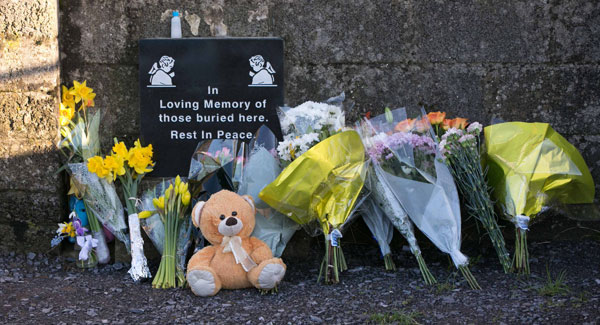
Update 6.25pm: Gardaí say they are in contact with the Galway coroner in relation to the discovery of a significant number of human remains on the site of the former mother-and-baby home in Tuam.
It follows a call from Sinn Féin for a statement from Gardaí on what they had done to secure the discovery.
Earlier: Enda Kenny has described the horror of the Tuam buried babies discovery but refused to commit to widening the inquiry so that up to 180 institutions are investigated, writes Juno McEnroe, Political Correspondent.
Amid claims in the Dáil that the commission of investigation terms are inadequate, Mr Kenny said he would not interfere with the independent probe as well as the separate role of gardaí and coroners.
He was speaking after the shock confirmation last week that “significant” infants remains have been found at the former Church-run site in Galway.
He described the mass grave containing human remains of babies in Tuam as a “chamber of horrors”.
He says there now needs to be “a period of reflection” to decide how to proceed in relation to widening the terms of reference of the commission to examine all former homes.
Mr Kenny says as a society we have to deal with this now, or another Taoiseach will be addressing it again in 20 years.
Mr Kenny described the find as a “social and cultural sepulchre”. He conceded that the State had been responsible for placing children in the mother-and-baby institutions.
“No nuns broke into our homes to kidnap our children – we gave them up to what we convinced ourselves was that nuns care.
“We gave them up maybe to spare the the savagery of gossip, the wink and the elbow language of delight – in which the ‘holier than thou’s’ were particularly fluent.
“And we gave them up because of our perverse, in fact morbid, relationship with what you call respectability”.
But he refused to address calls to extend the remit of the inquiry.
Mr Kenny also commended historian Catherine Corless, whose research helped reveal the shocking discovery in Tuam.
He said he hoped that “once and for all” that the “sad legacies of the past” could be dealt with.


